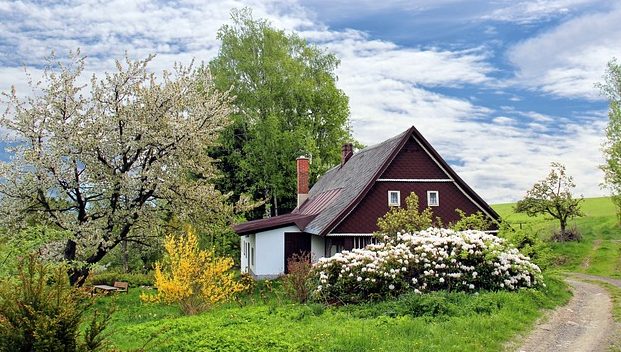Setting rules for VRBO: Cumberland votes on short-term rentals
Published 9:29 pm Tuesday, September 26, 2023
|
Getting your Trinity Audio player ready...
|
CUMBERLAND – Around 11 short-term rentals are operating in Cumberland County, including Airbnbs, VRBO and campgrounds. The Board of Supervisors wants to make it clear what’s allowed and what’s not, before any others are added to the list.
First off, let’s look at the new definition. In Cumberland County, short-term dwellings are defined as “the provision of a room or space that is suitable or intended for occupancy for dwelling, sleeping or lodging purposes, for a period of fewer than 30 consecutive days, in exchange for a charge for the occupancy.” So there is a time limit, hence the ‘short-term’ name. In order to be considered in this category, an operation can’t let people stay longer than 30 days.
Also, the short‐term rental dwelling operator is now defined as the host of this dwelling whether they are the owner or any other possessive capacity. Basically, if someone is trying to rent out the property, they are legally considered the host. It doesn’t matter if they’re the actual property owner or someone managing it for a company.
New standards added
Along with a new definition, short-term rental operations such as Airbnbs and VRBO now have new standards to follow. These standards were originally going to go into effect on Sunday, Oct. 1, however, the date was moved to Monday, Jan. 1, 2024, to give owners more time.
“I think it’s very good that we have a standard of safety in place for people who do come to Cumberland County so they can leave with a good experience,” said Cumberland Board of Supervisors Chairman Brian Stanley.
The new standards include some regulations for the renters including quiet hours from 11 p.m. to 7 a.m. and having a max capacity of whatever the maximum is set by the water system permit. Other standards include all food prepared by the owner on site must meet federal, state and local regulations and the rentals must get a fire inspection annually.
These standards also require the owner to register this short-term dwelling regularly with the County’s Planning & Zoning Department. There is no fee but the operator must have a valid Business License from the Commissioner of the Revenue.
Arguing over what’s included
Not everyone agreed as to what type of operations were to be considered ‘short-term’ rentals. During the public hearing, Board of Supervisors member Laura Bunton claimed that under Virginia Code § 15.2‐983, bed and breakfasts aren’t included in this registration requirement, even though the county ordinance includes it. Bed and breakfasts seem to be paired more with motels and hotels than VRBO or Airbnbs.
“I would like to open a bed and breakfast but I don’t want to have to continue to register with everybody and register two or three times,” she said.
Supervisor Ronald Tavernier checked with County Attorney Kemper Beasley if this was correct. Beasley replied that he was unsure of this particular nuance and would look into it. Stanley noted that they could move on and if there was a problem they would vote again to fix it.
Supervisor Gene Brooks asked who was going to enforce all of these rules. Stephany S. Johnson, planning director and zoning administrator for the county, replied that everything will come through her office. The registration information will be held in her office but emergency services will be aware of the short-term rentals so that they can properly respond to the situation.
“That way fire and EMS know what they’re going into should their services be needed,” said Johnson. “They’ll know from the call that it is a short-term rental and that it could be multiple people in the dwelling.”
If there is an after-hour noise complaint the Sheriff’s Office would be called to take care of it and they would let Johnson know to take care of it on her end the next morning.
VRBO, Airbnb allowed without permit
The vote was unanimous to add new and revise the existing definitions regarding short-term rental dwellings that regulate the operation of these rentals. The vote also allows for these short-term rentals in RA-1 zoning districts without the need for a conditional use permit.






